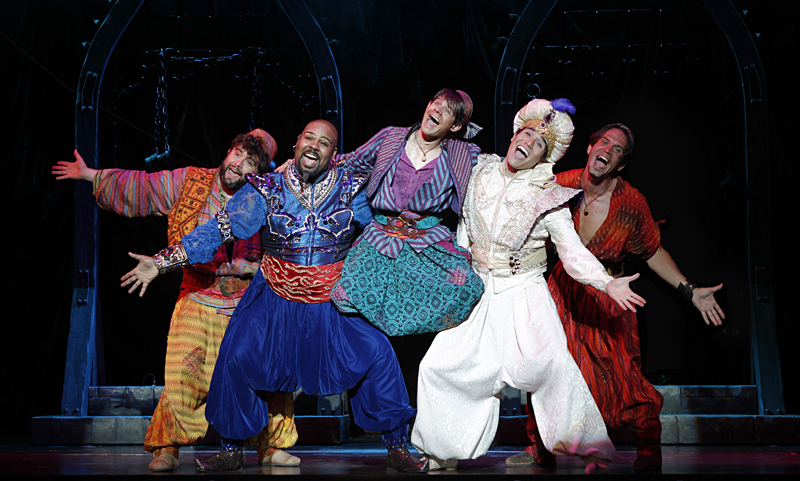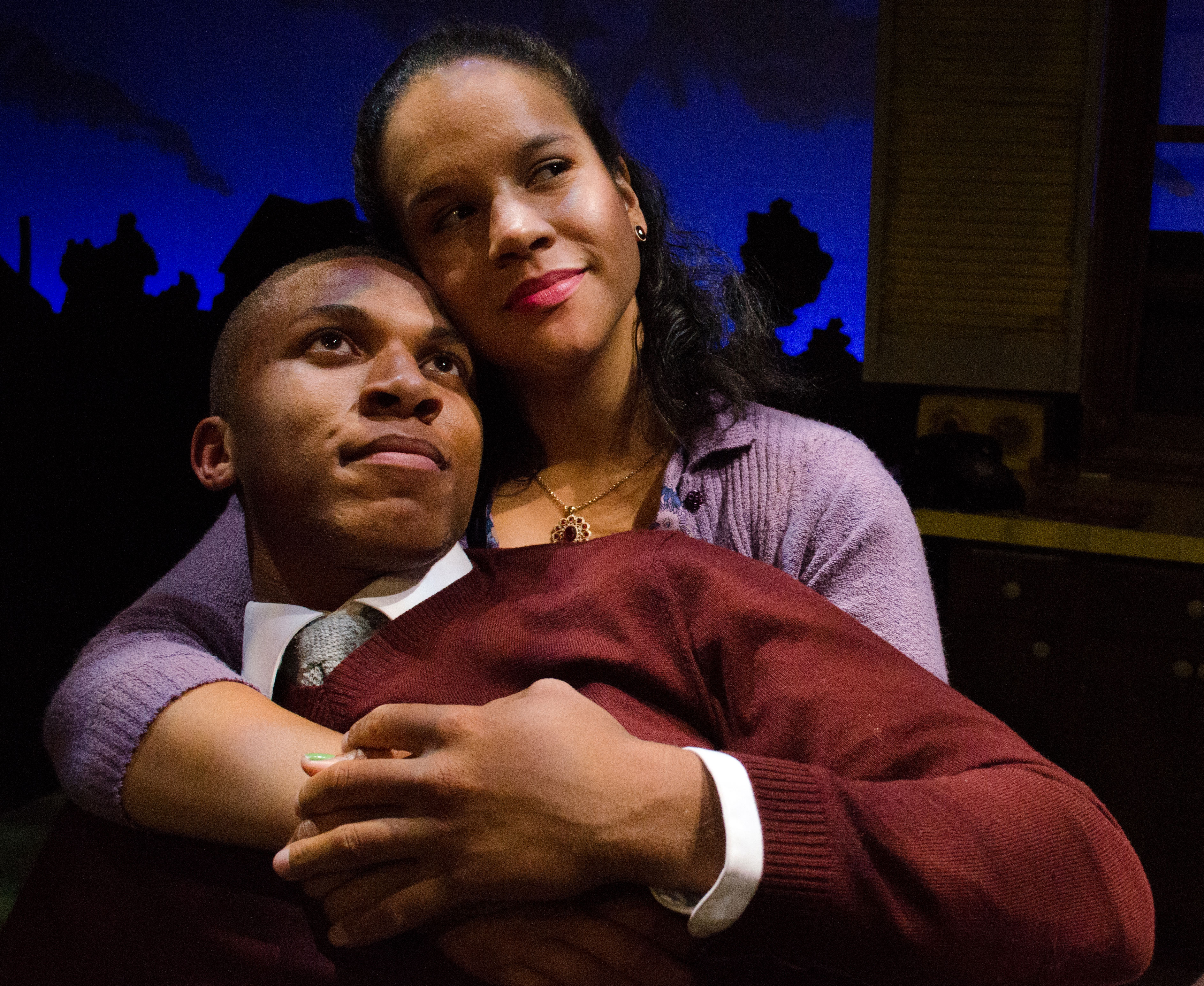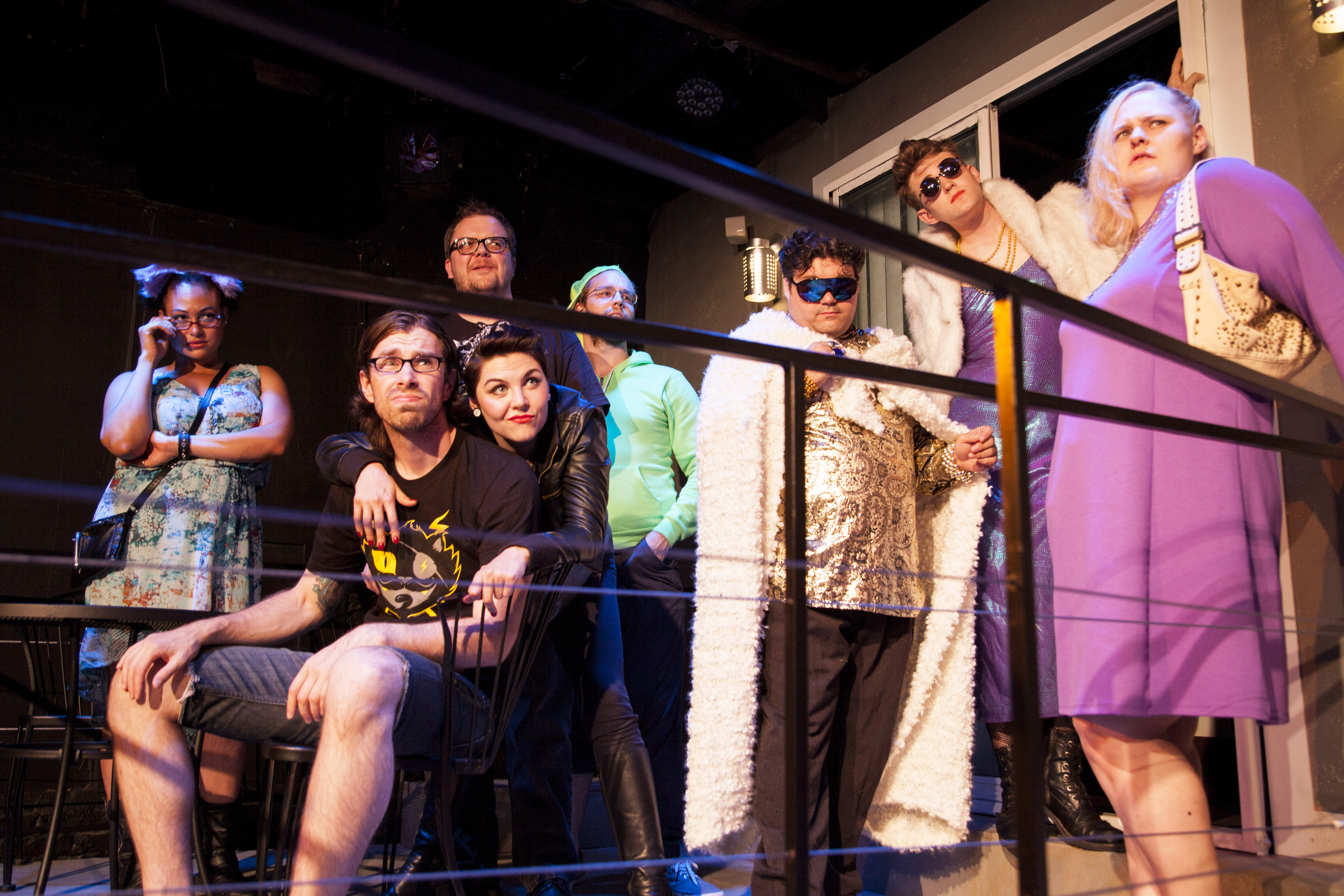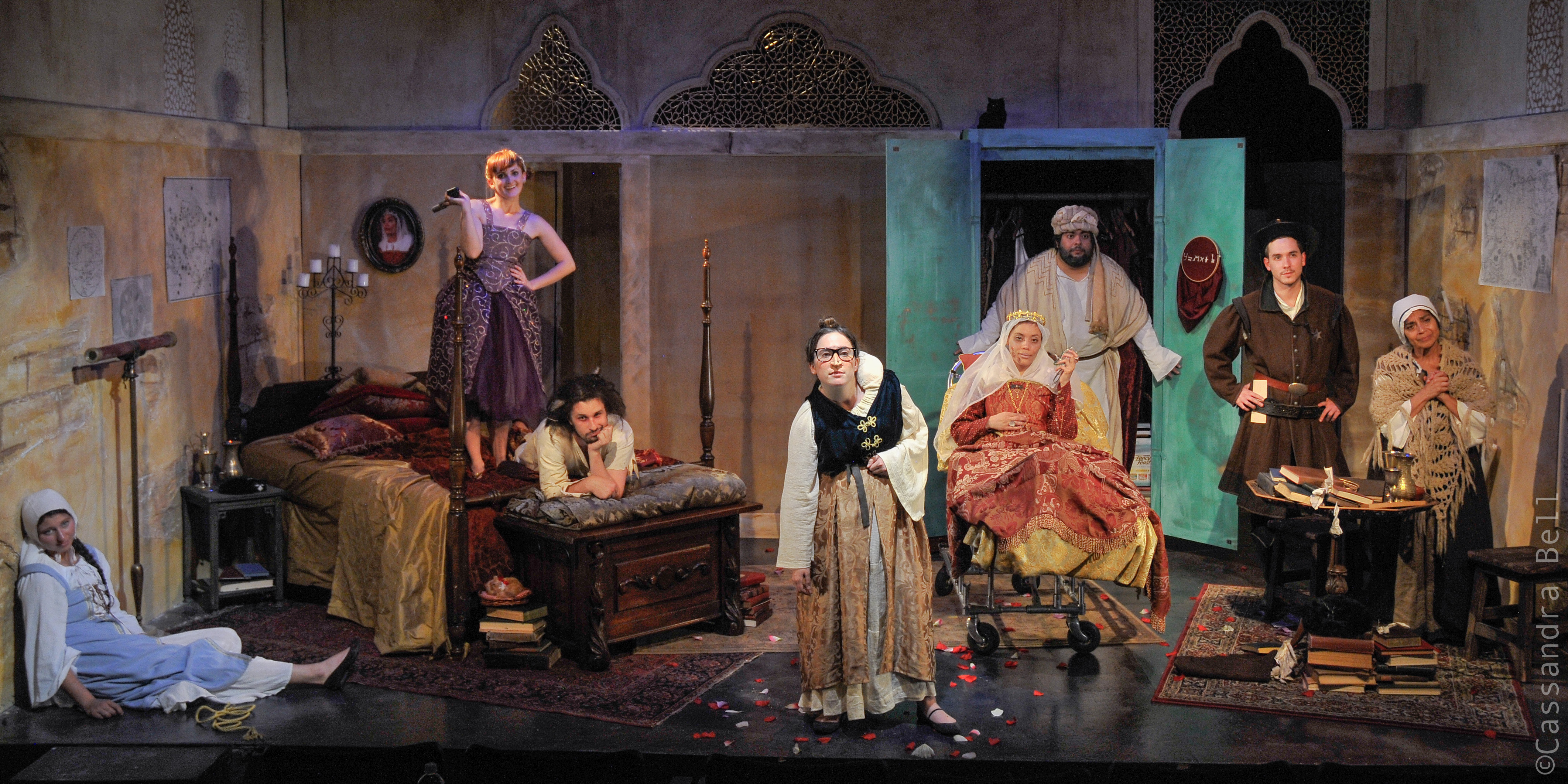Disney’s new adaptation of Aladdin, its 1992 animated hit movie, aspires to be Fun for All Ages without any rough edges. In an effort to please everybody, however, what’s left is a beautifully packaged present with not much inside the box. Aladdin is bold and bright, exquisitely staged, and brilliantly performed. It’s also vapid and about as scary as a whirl on Disneyland’s teacup ride.
That makes sense on both counts. The G-rated Aladdin was the top-grossing U.S. movie of ’92 and netted a half-billion dollars worldwide. It’s since morphed into a theme-park ride and video game, and this new show will doubtlessly open a new tributary in the Disney revenue stream. Especially after the stage success of The Lion King, it’s only logical that Disney entrepreneurs would take a closer look at their properties to weigh what else might be mined.
They’ve chosen well, but overplayed their hand. Unlike The Lion King, this text (by Chad Beguelin) is so toothless that it’s likely to be a huge hit with audiences and leave tastemakers in a torpor. Mediterranean trappings aside, the real patina here is that of naked avarice. Aladdin doesn’t need Broadway to make money—it could tour for years and take residence in Vegas, Branson, or Anaheim. Though if it does reach New York, critics could justifiably crucify the show’s shameless pursuit of profit.
For anyone who somehow missed the movie or never read the story, Aladdin (Adam Jacobs) is a young street urchin who falls in love with the willful princess Jasmine (Courtney Reed). The evil court vizier Jafar (Jonathan Freeman) plots to overthrow her father the Sultan (Seán G. Griffin) with the help of a magic lamp; but being unworthy, Jafar must trick Aladdin into retrieving the lamp without knowing the power it contains. When Aladdin unwittingly releases the Genie (James Monroe Iglehart) from the lamp, Aladdin uses his newfound friend to help woo the princess. Hijinks and high adventure ensue in a story that kids can easily follow.
There is so much here that does work, it’s a pity there’s not more to work with. The cast is uniformly marvelous—Jacobs singing his heart out, with a mouthful of the whitest Chiclets for teeth; his trio of comrades (Brian Gonzales, Andrew Keenan- Bolger, and Brandon O’Neill), who threaten to steal the show every time they’re in a scene; and Freeman’s wickedly androgynous Jafar, a slithery combination of Maleficent from Sleeping Beauty and Flash Gordon’s foe, Ming the Merciless. It’s delicious stuff. And to cap it all, Reed gracefully walks the razor line between shrew and doe-eyed innocence. Still, it’s not until Iglehart appears as the Genie that Aladdin finally hits full stride. Since he’s essentially trying to one-up Robin Williams’ movie Genie, watching him chew the scenery is like watching an anaconda eat a goat—terrifying in its beauty.
Alan Menken’s original movie score, with lyrics by Howard Ashman and Tim Rice, makes an easy transition to the stage. Two songs cut from the film, “Proud of Your Boy” and “High Adventure,” here fit snugly with the whimsy of the original Disney concept. New stage numbers by Menken and Beguelin are stylistically similar enough to pass muster, but there’s nothing here to replace your karaoke rendition of “A Whole New World” the next time you’re three drinks in at Rock Box.
The usual profusion of Disney Dollars is well on display—with a crackerjack orchestra that won’t miss a note (see page 20) and the crisp staging of director Casey Nicholaw (The Book of Mormon). Add to that the dozens of eye-popping costumes, stunning sets, and a dazzling light show. Aladdin has spectacle, sure, but so does the opening number at the Academy Awards every year—and who wants three hours of that?









